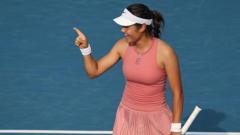Why Was Gergiev's Concert Cancelled in Italy?

Cancellation of Concert Featuring Valery Gergiev: A Cultural and Political Statement
The recent cancellation of a concert featuring Russian conductor Valery Gergiev in Italy has sparked a significant amount of discussion and controversy. This decision, influenced by a backdrop of political tensions and ethical considerations, highlights the intersection between culture and current global affairs. The concert was slated to take place at a former royal palace near Naples as part of the Un'Estate da RE music festival. However, following days of criticism from various quarters, including human rights activists and Kremlin critics, the organizers chose to cancel the event.
Valery Gergiev, a prominent figure in the classical music world, is known for his association with President Putin and has faced intense scrutiny since the onset of the Russian invasion of Ukraine in February 2022. Gergiev's refusal to condemn the invasion has resulted in him being barred from many Western stages, effectively isolating him from the global music community. The Italian Culture Minister, Alessandro Giuli, called the cancellation a matter of "common sense" and a protection of the "values of the free world." This incident raises questions about the role of artists in political discourse and the ramifications of cultural boycotts in the contemporary world.
Background of the Controversy
Gergiev's involvement in the concert was met with backlash from various factions, particularly as Italy hosted heads of state from across Europe to discuss support for Ukraine. The situation became even more heated when Ukraine's government urged the festival organizers to withdraw Gergiev's performance, labeling him as "Putin's mouthpiece." This plea reflected a broader sentiment that artists who align themselves with oppressive regimes should not be welcomed in democratic societies. The cancellation was celebrated by some, including Yulia Navalnaya, the widow of the late Russian opposition leader Alexei Navalny, who stated that no artist supporting the Russian dictatorship should find a platform in Europe.
The Reaction from Russia
In stark contrast, Moscow's ambassador to Italy expressed outrage at the cancellation, labeling it a "scandalous situation" that exemplified a broader trend of "cancelling" Russian culture. This response underscores the complexities involved in separating art from politics, especially in a world where cultural figures are often seen as representatives of their nations. The cancellation has reignited debates about artistic freedom, political expression, and the implications of boycotting individuals based on their political affiliations.
The Impact on Cultural Events
Cultural events often serve as platforms for dialogue and understanding, yet they can also become battlegrounds for political ideologies. The decision to cancel Gergiev's concert can be seen as part of a larger movement within the arts community to take a stand against authoritarianism and support human rights. However, this approach raises ethical dilemmas about whether it is fair to penalize artists for the actions of their governments. Gergiev, who has had a prolific career, is now facing the consequences of a political landscape that many argue he has chosen not to publicly challenge.
Artists and Political Responsibility
As the lines between culture and politics become increasingly blurred, artists are often confronted with the question of their responsibility in advocating for justice and human rights. Should they use their platforms to speak out, or is it acceptable for them to maintain silence on political matters? Gergiev's situation exemplifies the difficult choices faced by artists, particularly those who operate in oppressive regimes. The controversy surrounding his concert in Italy brings to light various perspectives on the role of artists in society:
- Advocacy for Human Rights: Many believe that artists have a moral obligation to advocate for human rights and social justice. This perspective argues that silence equates to complicity, particularly when atrocities are occurring.
- Art as a Universal Language: Others contend that art should transcend politics and serve as a universal language that brings people together, regardless of their political affiliations. This viewpoint emphasizes the importance of artistic expression free from political constraints.
- Consequences of Association: The repercussions of an artist's political associations can lead to significant consequences, as seen in Gergiev's case. The cancellation of his concert raises questions about the extent to which artists should be held accountable for their political affiliations or the actions of their governments.
The Broader Implications for Cultural Diplomacy
The cancellation of Gergiev's concert also raises important questions about cultural diplomacy and its role in international relations. Cultural exchanges have historically been used as tools to foster understanding between nations. However, when political tensions rise, these exchanges can be jeopardized. The decision to cancel based on political affiliations can either reinforce or undermine diplomatic efforts, depending on how it is perceived by the global community.
What Does This Mean for Future Collaborations?
The implications of this cancellation extend beyond Gergiev and the immediate event in Italy. It signals a growing trend where cultural institutions may increasingly distance themselves from artists associated with controversial political regimes. This could lead to a shift in how cultural diplomacy is approached, with a greater emphasis on aligning artistic collaborations with human rights values. The future of cultural events may well depend on the willingness of organizations to navigate these complex ethical waters.
Key Takeaways from the Gergiev Controversy
As the dust settles on the cancellation of Gergiev's concert, several key points emerge from this situation:
- The intersection of art and politics: This controversy underscores the complex relationship between cultural figures and their political environment.
- Human rights advocacy: The actions taken by festival organizers reflect a commitment to human rights that is increasingly influencing cultural events.
- The evolving landscape of cultural diplomacy: The decision to cancel performances based on political considerations may reshape how international cultural collaborations are approached.
Frequently Asked Questions
Why was Valery Gergiev's concert canceled in Italy?
The concert was canceled due to criticism from human rights activists and Kremlin critics, who objected to Gergiev's ties to President Putin and his refusal to condemn the Russian invasion of Ukraine.
What was the reaction from the Italian Culture Minister regarding the cancellation?
Italian Culture Minister Alessandro Giuli described the cancellation as "common sense" and emphasized the importance of protecting the "values of the free world."
How has Gergiev's career been affected by the political climate?
Since the Russian invasion of Ukraine, Gergiev has been barred from performing in many Western venues, significantly impacting his career and reputation in the global music community.
What are the broader implications of canceling cultural events based on political affiliations?
Cancelling cultural events based on political affiliations raises questions about the role of artists in advocating for human rights and can significantly influence future cultural diplomacy and collaborations.
Conclusion: The Path Ahead for Culture and Politics
The cancellation of Valery Gergiev's concert in Italy serves as a poignant reminder of the complex relationship between culture and politics. As global tensions rise, the decisions made by cultural institutions will likely continue to reflect broader societal values and ethical considerations. This incident raises an important question: How should the cultural community navigate the delicate balance between artistic expression and political accountability in a time of crisis?
In an era where art and politics are increasingly intertwined, the future of cultural diplomacy and the responsibilities of artists remain at the forefront of societal discussions. The Gergiev controversy is only one of many instances that challenge us to reflect on these vital issues. How do you believe cultural institutions should respond to the political climate while promoting artistic expression? #CulturalDiplomacy #HumanRights #ArtAndPolitics
Published: 2025-07-21 16:06:05 | Category: technology



